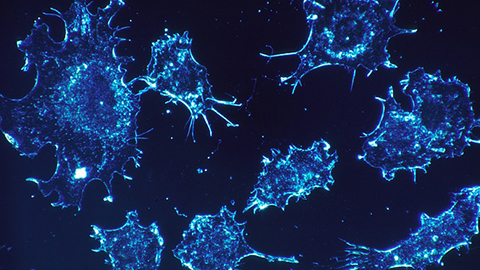Award-Winning Mathematical Model Predicts Adverse Events of Chemotherapy in Metastatic Prostate Cancer
A group of researchers from the University of Turku and Turku University Hospital has developed a predictive model to assess the efficacy of chemotherapy in patients with metastatic prostate cancer. The developed model has been selected as the top performer model in the Prostate Cancer DREAM 9.5 Challenge competition, where more than 550 researchers participated worldwide.

A group of computational and clinical experts from the University of Turku developed a mathematical model to predict adverse events of docetaxel chemotherapy medication in patients with metastatic prostate cancer. The prediction is based on baseline laboratory values and clinical features before the treatment was initiated.
– The competition offered us a unique opportunity to access high-quality clinical trial data on a large group of patients, which is an excellent platform for modelling. Next, it will be interesting to evaluate the model’s performance and applicability in clinical settings, says Laura Elo, Research Director and leader of the Computational Biomedicine group at Turku Centre for Biotechnology.
Metastatic castration-resistant prostate cancer (mCRPC) is a persistent progressing disease, resistant to androgen deprivation therapy without responding to standard surgery. It is now more than a decade that docetaxel medication has been the main treatment for mCRPC patients.
Several studies have demonstrated the efficacy of docetaxel in increasing the overall survival of patients. However, assessing the efficacy and toxicity of the drug has remained clinically an important issue. Serious adverse events are occurring, such as decreasing number of lymphocytes in blood, increased prevalence for infections, fatigue and even a decrease in patient’s overall well-being. Only some of the patients benefit from the treatment. Before starting the treatment, it is difficult to know who will truly benefit from it and to whom the treatment will only cause adverse events without positive results.
– Improvement of treatment practices requires a better understanding about the effects of therapies. Collaboration between clinical and computational experts has provided us new insights into this. The competition was an excellent opportunity to gain access to high-quality datasets and to apply computational modelling in real life. The model helps us in understanding what happens to patients during exhaustive treatment, says Sirkku Jyrkkiö, Chief of Outpatient Clinic at the Department of Oncology and Radiotherapy at Turku University Central Hospital.
– Our method improves the prediction of the effects of the treatment by combining several weak models into one powerful high performance prediction. The results can help oncologists in choosing patients for further chemotherapy treatments, says Fatemeh Seyednasrollah, Doctoral Candidate in the Computational Biomedicine group at Turku Centre for Biotechnology.
JV
Picture: skeeze